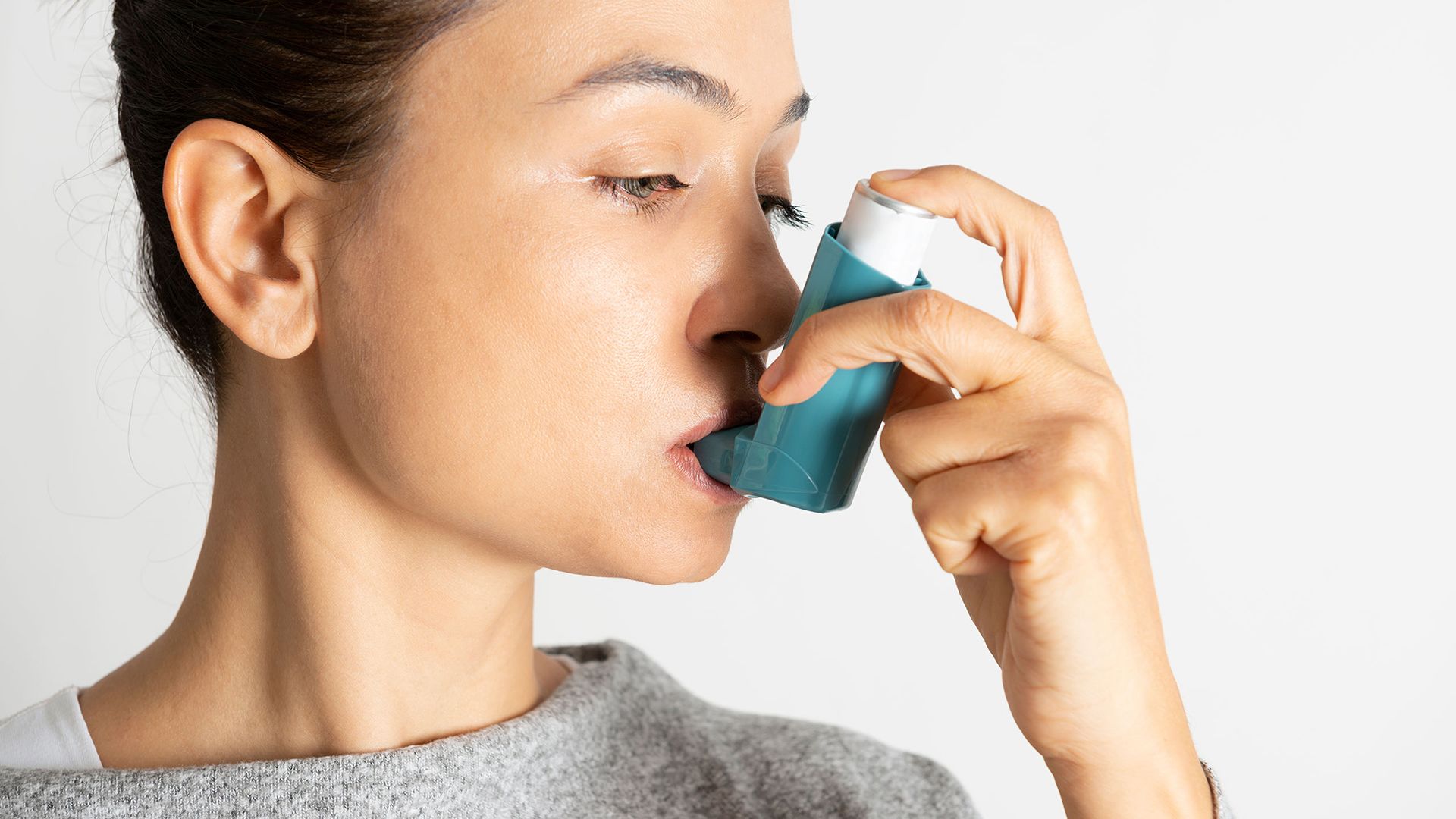Updated on January 9, 2025
Taking care of asthma doesn't just mean looking after your lungs—it means keeping your whole body in good shape as well. One of the easiest ways to protect your overall health while avoiding potentially dangerous diseases is vaccination.
Vaccines are especially important for people with chronic conditions (like asthma) who may have a harder time fighting illnesses. Regularly using corticosteroids—as many people with asthma do as part of their treatment regimens—can weaken the immune system. In fact, corticosteroids are used to suppress the immune system, which can help in the treatment of autoimmune disorders. This makes it even more important to protect yourself with vaccines.
Vaccines to help protect your lungs
Flu vaccine: Being infected with influenza (the flu) can be dangerous, especially for someone with asthma. Because the flu can make your airways inflamed, it can cause your asthma symptoms to get worse and can trigger an asthma attack, which could be life-threatening. It can also turn into pneumonia—and people with asthma develop pneumonia after having flu at a higher rate than people without asthma. That’s why it’s so important to get a flu shot every year.
The benefits of a flu shot aren’t limited to just avoiding pneumonia—flu vaccination can also mean you will get less severely sick with the flu and less likely to have to go to the hospital.
The Centers for Disease Control and Prevention (CDC) advise everyone age 6 months and older to get an annual flu vaccine by the end of October each year. People with asthma should avoid the nasal spray version of the flu vaccine because it can aggravate asthma symptoms. Instead, people with asthma should receive injectable flu shots, which have a great safety record in people with asthma.
Pneumococcal vaccine: This shot protects against pneumonia, a potentially deadly infection in the lungs. Asthma increases your risk for getting pneumonia and related infections, so people with asthma should get this vaccine, as well as anyone 55 years and older, regardless of whether they have asthma.
There are two types of vaccines against pneumonia that have been approved in the United States: conjugate and polysaccharide vaccines. Depending on your age and health situation, you may need one or possibly two doses of one or a combination of these pneumococcal vaccines to receive the full protective effects. Speak with your healthcare provider (HCP) to find out the best vaccination schedule for you.
Tdap vaccine: Get this vaccine to protect against tetanus (lockjaw), diphtheria, and pertussis (whooping cough), all of which can lead to very serious breathing problems. Whooping cough, in particular, can cause violent coughing and make it hard to control asthma even months after contracting the illness.
The Tdap shot is recommended for all adults if they didn't get it as a child and for pregnant women. And if it's been a long time since you've had this shot, or can't remember, ask your HCP if you need a Td booster. Generally, a booster every 10 years is a good idea, since the vaccine becomes less effective over time.
RSV vaccine: Respiratory syncytial virus (RSV) usually causes mild symptoms that resemble those caused by the common cold. However, for people with asthma, RSV can trigger an asthma attack.
Depending on your age, you may be eligible for one of the three available RSV vaccines designed for adults. They are generally given to adults ages 60 and older, except for adults ages 50 and older who have one or more chronic conditions, such as lung disease, heart disease, diabetes, kidney disease, and liver disease. It’s best to discuss with your HCP the best RSV vaccine schedule for your age and health status.
COVID vaccine: People with asthma may be at a higher risk of developing serious illness from a COVID infection, according to the CDC. For people with moderate to severe asthma, it’s very important to not only be vaccinated against COVID but to stay up to date on your COVID vaccines. The SARS-CoV-2 virus that causes COVID-19 changes over time, so updating your vaccination means you’ll be protected from the latest viral strains.
Everyone over the age of six months should receive COVID vaccines made by one of the three manufacturers whose vaccines have been approved in the United States. Speak with your HCP about the best vaccine schedule to follow based on your health and vaccination history.
Other vaccines to stay well
One of the most important ways to protect your health is to stay up to date with all your vaccinations. People with chronic conditions, including asthma, tend to be more at risk of severe illness or complications from many infectious diseases, and the protection offered by vaccination is one of the foundations for staying well.
Hepatitis B: Hepatitis B is a viral liver disease that can cause short-term and serious chronic illness. Many people don’t realize they’re infected, as it can often come with no symptoms or only mild symptoms.
All infants, anyone under age 19, and all adults between the ages of 19 and 59 should be vaccinated against hepatitis B, and older adults may also benefit from the vaccine.
Measles, mumps, and rubella (MMR): This shot, which targets three different diseases, is recommended for anyone born in 1957 or after, or for anyone without written or laboratory evidence of having had a vaccine or the three diseases.
Healthcare professionals, college students, and international travelers are also at risk for getting measles, mumps, and rubella and should make sure they’re vaccinated. There is also limited evidence that being vaccinated against MMR early in life may protect against developing asthma. In one small study, the MMR vaccine actually reduced the risk of children developing asthma.
HPV (human papillomavirus): Children and young adults between the ages of 9 and 26, and some adults aged between 27and 45, should be vaccinated against this sexually transmitted infection. Although the infections themselves may not come with symptoms, they can cause many kinds of cancer, such as cancer of the throat, cervix, penis, anus, or vagina.
Zoster (shingles): Shingles is an infection that shows up as a painful rash and can cause chronic nerve pain. Anyone age 50 or older should receive the shingles vaccine, as well as people ages 19 years or older with a weakened immune system.
If you have had shingles or chickenpox in the past, or have had the chickenpox vaccine, it’s important to understand that these will not offer protection from shingles, and you should still get the vaccine. It’s especially important to be vaccinated against shingles if you have asthma. Several studies have found that people with asthma are more likely to develop shingles than people who don’t have asthma.
Vaccine recommendations are complex and depend on your overall health and what immunizations you've had before, so talk with your HCP to map out which vaccines you need.





